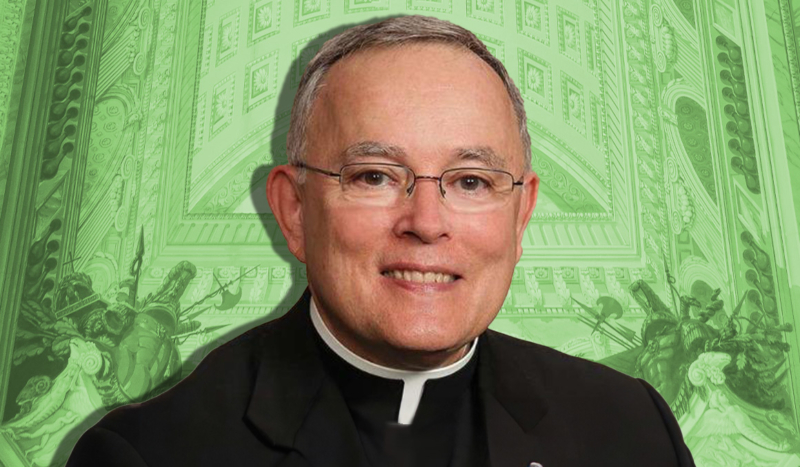
Archbishop Charles J. Chaput via Facebook
CV NEWS FEED // Archbishop Emeritus of Philadelphia Charles Chaput lamented in an op-ed this week that the recent publication of Fiducia Supplicans is a “double minded exercise in simultaneously affirming and undercutting Catholic teaching” that has become a pattern in Pope Francis pontificate.
Chaput expressed his concerns in an op-ed titled “The Cost of Making a Mess,” on December 22 for First Things Magazine.
“Confusion among the faithful can often be a matter of innocent individuals who hear but fail to understand the Word,” Chaput wrote:
Confused teaching, however, is another matter. It’s never excusable… [because] deliberate or persistent ambiguity—anything that fuels misunderstanding or seems to leave an opening for objectively sinful behavior—is not of God. And it inevitably results in damage to individual souls and to our common Church life.
The Archbishop said that the Vatican document was “quickly interpreted as a significant change in Church practice. Father James Martin, a longtime advocate for LGBTQ concerns, was promptly photographed blessing a gay couple in a New York Times article that noted [that] Father Martin had waited years for the privilege of saying such a prayer, however simple, out in the open.”
Describing Pope Francis’ responsibility in the ensuing confusion, Archbishop Chaput explained, “First, a key role of the pope is to unify the Church, not divide her, especially on matters of faith and morals. He has a similar duty to unify the bishops and not divide them.”
“Second, an essential task of a loving pastor is to correct as well as accompany,” he continued:
Blessings should encourage, but also, when necessary, challenge. People in same-sex and other non-marital sexual unions need a challenging accompaniment from the Church. Pope Francis often seems to separate these roles while Jesus himself always embodied both in his ministry.
“Third, relationships that the Church has always seen as sinful are now often described as ‘irregular.’ This neuters the reality of morally defective behavior and leads to confusion about what we can and can’t call ‘sin,’” Chaput wrote:
Finally, while the document does not in fact change Church teaching on marriage, it does seem to change Church teaching on the sinfulness of same-sex activity. Marriage isn’t the point of Fiducia Supplicans. Its point is the moral nature of same-sex unions, and this is a crucial distinction.
According to Chaput, Pope Francis’ constant complaining against “rigidity,” especially when speaking about American Catholics, “diminishes the dignity of the Petrine office and the man who inhabits it. It also disregards the collegial respect due to brother bishops who question the Vatican’s current course. And again, it is not of God.”
“Characterizing fidelity to Catholic belief and practice as ‘fearfully sticking to rules’… is irresponsible and false. The faithful deserve better than such treatment,” he wrote.
The Archbishop emeritus concluded by acknowledging that “saying these things, of course, will invite claims of ‘disloyalty.’ But the real disloyalty is not speaking the truth with love. And that word ‘love’ is not some free-floating balloon of goodwill. It’s an empty shell without the truth to fill it.”

